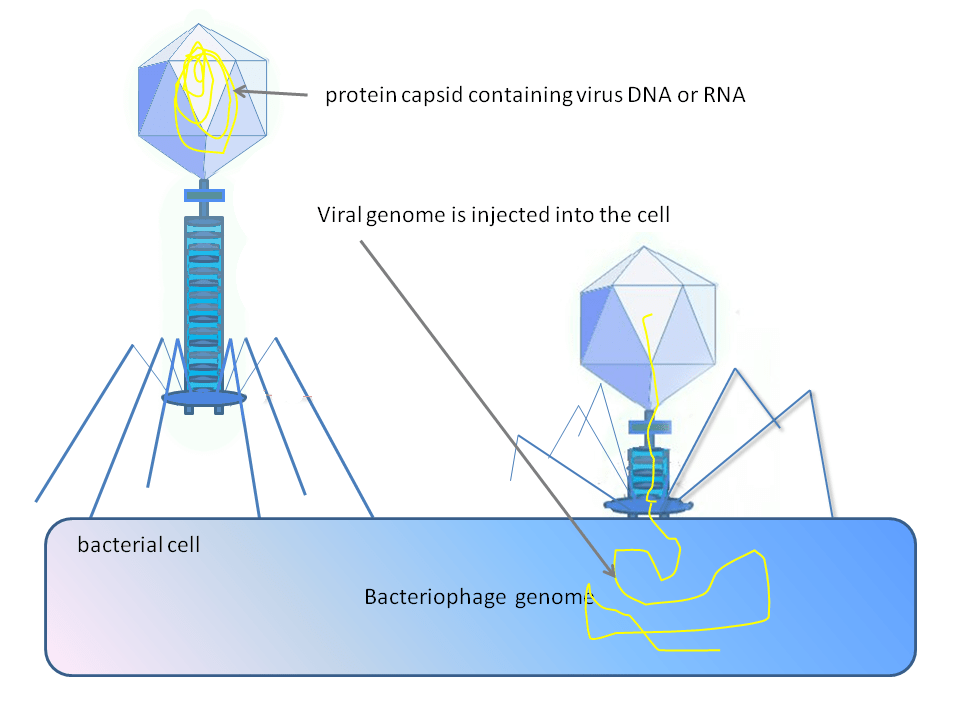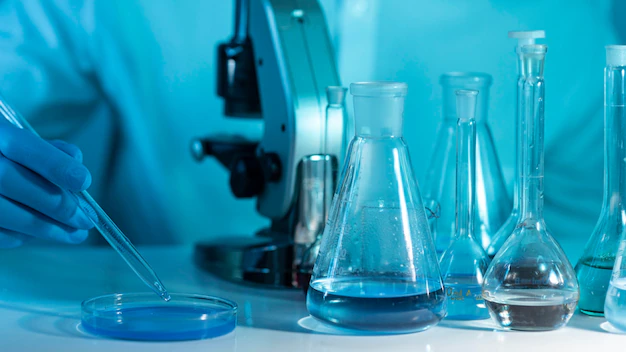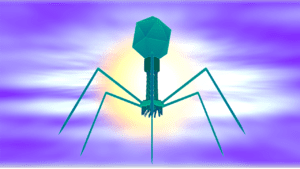The food chain has a comprehensive arrangement, and you will always notice a definable balance. There are animals feeding on each other, maintaining the natural balance of nature. Over the natural human eye, we get to see some, and the others are not that visible. But the world does not stop, and the feeding habit continues. One such astonishing activity happens in front of our eyes, but not many are accustomed to the same. We call it Phage Therapy or a differential methodology to fight bacteria. So let’s learn about the concept “What is Phage Therapy?”

In Phage Therapy or bacteriophage therapy, bacterial infections are treated using viruses. Here the term “bacteriophage” stands for “bacteria eater” and are the natural enemies of the harmful bacteria living. However, these kinds of viruses will never cause any harm to regular plants, animals, or humans.
You will see these viruses in the water, sewage, soil, and other living places feeding on unuseful bacteria. The primary task of the former is to keep the growth of bacteria in nature under check.
What are the advantages of Phage Therapy?
Phages being antibacterial agents, are great as an alternative to chemical antibiotics. In an era where bacteria-stimulated infections are on the rising end, Phages do offer various advantages. Let’s look into the same:

Phages are bactericidal agents:
Lytic Phages, on the take of attacking bacteria, ensure that the latter can no longer regain their work mode. This leads to the absolute loss of operational ability on the bacterial part. While on the other hand, we have antibiotics with bacteriostatic abilities that cause the evolution of the bacteria towards comprehensive resistance.
Phages can auto-dose:
When undergoing their bacterial killing process, they can multiply independently. They take special attention and action towards the places of bacterial location, causing rapid dosage. Human researchers do not have to do anything; the phages can multiply independently.
Retention of the normal flora:
The regular bacterias protecting human health are safe from the hands of Phage viruses. This is because the particular has a host specificity of its own and does only infect a few more strains of bacterial species that are closely related. But the overall percentage is low. On the other hand, we have certain chemical antibiotics that affect broader-spectrum bacteria, killing the good ones.
Versatility in application:
One can apply Phages to the affected area in creams, liquids, and impregnated solid forms. Also, they are similar to the chemical antibiotics we find on the market. However, in terms of effectivity, Phages are more natural.
Easy discovery: it is easy to find Phages applicable against pathogenic bacteria. Especially from the waste materials and sewage. However, isolation of the Phage from the target Bacteria does get technically demanding when the latter is difficult to culture. But unlike antibiotics, Phages are not toxic, and researchers find it easy to isolate them from most target bacteria.
Single-dose application is enough:
You will have to apply only a single Phage bacteria in the beginning. And with persistent active therapy, the Phages keep on “auto dosing,” resulting in the mass killing of the target bacteria. However, at times single dosage is not enough, and the researchers need to come up with multiple dosages as relevant.
Low cost of maintenance:
Phage production comprises an amalgamation of host growth and adequate purification. The host growth-related costs depend on the bacterial species, while the purification amount does start to stabilize with technology improvement. In general, the isolation and characterization costs of Phage bacteria are relatively low.
What are the disadvantages of Phage Therapy?
Though an adequate alternative to chemical antibiotics, the particular has a long way to serve in terms of easy availability, earning the general public’s trust, and unplanned prognosis from time to time. Below is a combined list of the disadvantages related to Phage Therapy:

There are limitations in the number of Phages good for Phage Therapy:
A Phage appropriate for therapeutic conditions can reach and kill bacteria of low potential. They can also modify the living surroundings of the bacteria. However, these circumstances are easily applicable to obligately lytic phages. Which are stable under pre-scheduled temperatures and storage conditions. They are also in accordance with appropriate efficacies and confirm the absence of unwanted genes like toxins. However, on the other hand, applying temperate phages (non-obligately lytic) in therapy can cause potential problems by displaying superinfection immunity. The particular does allow bacteria to convert into a resistant ones.
Phages are different from pharmaceuticals:
Phages are most typically protein-based and live biological agents capable of interacting with a body’s immune system. They can even actively replicate and undergo evolution during manufacturing or use.
Phage Therapy is unusual to the regular public:
Western medical establishments are quite unfamiliar with the concept of Phages. Thus posing a great challenge for getting accepted by the wide market. Also, there are potential chances of the general public misinterpreting Phages with other viruses that cause disruption in human health. However, so far, the public has been empowered enough and aware of the disapproving viruses.
Countries and their take on Phage Therapy
Countries | Therapy mode |
| The United Kingdom | Due to undergoing regulations, Phage therapy in the UK is only available for “compassionate use.” This includes situations where conventional antibiotics were not able to function properly. |
| The United States of America | Phage Therapy in the US is allowed in a case-specific mode. This includes the patent, which has undergone all possible treatment alternatives. |
| Australia | In Australia, it is viewed as an experimental form of treatment. And patients under the special access scheme are allowed to receive the treatment. As determined by the Therapeutic Goods Administration of Australia. |
| India | In association with the Eliava Phage Therapy Center, an infrastructure for Phage therapy in India, has been generated. People affected can get themselves tested according to the standard Phages in India without having to travel to Georgia. |
There are a lot of speculations around Phage Therapy, and researchers are always giving in their best to make things possible. Till then, let’s maintain our calm and carry on understanding the facts as available. Also, if you have something more to share, do let us know in the comment section below.



